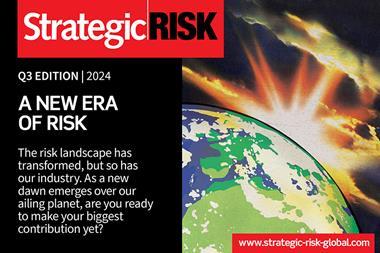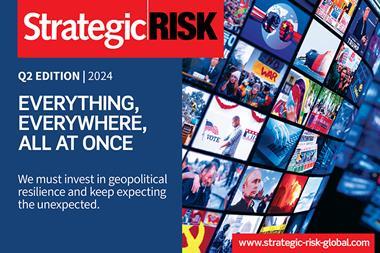Nobody wants to become a byword for failure to keep up. But with 2018 showing great changes in business models, everyone is under pressure to stay relevant. Be brave. Join the innovation revolution.
Click below to read the latest edition of StrategicRISK
Kodak, Blockbuster and Toys R Us – they all have one thing in common: they were slow to innovate and as a result, they went bust. Kodak was reluctant to build digital cameras for fear of killing its all-important film business; Blockbuster held on to its physical DVD business model while e-commerce outcompeted with online streaming options; and Toys R Us lost customer relevance due to its failure to embrace technology and adapt to changing consumer behaviours.
Nowadays, these companies are nothing more than names referenced during presentations prolifically entitled: ‘Evolve or die!’ But as clichéd as those words may feel, they represent the cold harsh reality of today’s business landscape – companies are at great risk of insolvency if they are not fast and brave enough to, at the very least, move with the times.
To me, this is one of the greatest risks of the 21st century. Against a backdrop of highly advanced and super-smart technologies, a whole new economy has surfaced, challenging the status quo, transforming business operations, and in some cases, rendered long-held business models obsolete – with a lot more velocity than has ever been witnessed in the past.
The revolution is here! And it is in the on-demand, shared and intangible economies (see pages 12–14).
The almost overnight arrival of unicorn start-ups such as Uber, TravelCar, Airbnb, Deliveroo, Trringo and many others has taken long-established, conventional industries – farming, taxis, accommodation and food delivery – and turned them on their heads. And this has usually happened to the complete consternation of the incumbents, who failed to see the opportunity under their noses that was just waiting to be exploited.
As McKinsey points out in ‘The Economic Essentials of Digital Strategy’, an analysis of this mushrooming sharing-economy market, Airbnb provides an apt example. “Airbnb has not constructed new buildings; it has brought people’s spare bedrooms into the market. In the process, it uncovered consumer demand – which, as it turns out, always existed – for more variety in accommodation choices, prices and lengths of stay.”
In the same way, Uber didn’t buy vast fleets of new cars. It simply repurposed existing vehicles and drivers and made it easier for consumers to get a ride – and, crucially, at a lower cost than the established competition.
Deploying all the tools of the connected economy, an army of on-demand and sharing economy businesses are sprouting up to service every possible consumer need in ways that some of the incumbent industries never imagined.
As Boston Consulting Group points out in a definitive study, it’s here to stay. “Companies should be exploring their options in this new world of declining transaction costs and rising consumer interest in sharing. If they don’t, their competitors certainly will.”
But this isn’t to say that start-ups are intentionally disrupting traditional models. When I met with Patrick Smith, business resilience leader for Deliveroo last month, he was keen to dispel this notion. He said Deliveroo is transforming and enhancing the food industry, not disrupting it. To him, the platform has opened new “consumer channels that didn’t previously exist. It is not questioning the way in which restaurants operate.” (See pages 15–18.)
Smith went on to say this: “We have a business that is directly influenced by customer behaviour, which then uses this information to influence the food industry, with the aim of making what was previously unavailable, affordably available.”
Most sharing-economy businesses seem radical at first sight but on closer inspection turn out to be perfectly logical. Businesses have an opportunity here too, not just for growth, but to influence entire industries.
Robert F. Kennedy’s report to the US senate in 1966 sums up today’s business revolution well: “A revolution is coming whether we will it or not. We can affect its character; we cannot alter its inevitability.”
So, will we be joining the revolution?




















No comments yet